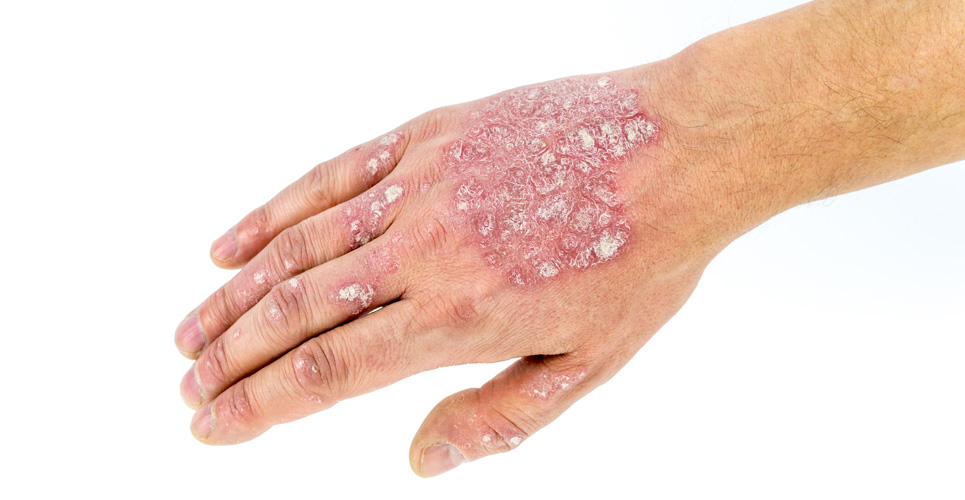↓Article continues below this sponsored advert↓
↑Advertisement↑
New clinical data from PSOLAR, an international disease-based registry, provide real-world outcomes regarding the use of psoriasis treatments by dermatologists in clinical practice. The data was presented at the 72nd Annual Meeting of the American Academy of Dermatology (AAD) in Denver, Colorado, USA.
The prospective, disease-based Psoriasis Longitudinal Assessment and Registry (PSOLAR) study was designed to assess therapeutic risk and benefits in a population of patients with moderate to severe psoriasis, while also meeting the needs for post-marketing surveillance of biologics including those marketed by Janssen. PSOLAR was launched in 2007 and represents the largest single intercontinental registry focused on psoriasis patients.(1)
Data in the current analyses, reflecting a median duration of 2.5 years of patient follow-up, showed that:(2)
- Unadjusted cumulative rates of malignancies are comparable among treatment groups in the registry, and the most frequently reported malignancies in the registry are generally comparable with the most frequently reported malignancies in the US population(3)
- Compared to rates in the infliximab, etanercept, and adalimumab treatment groups in PSOLAR, the unadjusted cumulative rates of serious infections were lower in the non-biologic treatment group and in the STELARA treatment groups(4)
- Unadjusted cumulative rates of major cardiovascular events (MACE, defined as cardiovascular death, stroke and heart attacks) in the PSOLAR population are comparable across biologic treatment groups(5)
- While there were no MACE events in 376 patients starting STELARA who had never received a previous biologic therapy, no distinct patterns in the incidence of MACE among new users of biologic therapy are evident in PSOLAR(6)
- PSOLAR represents a valuable resource for ongoing surveillance of safety events among patients with moderate to severe psoriasis(5)
“We are pleased that real-world global experience with STELARA demonstrates patient outcomes consistent with the long-term five year safety data seen in our clinical trial programme” said Frederic Lavie, Europe Medical Affairs Leader, Immunology, Janssen. “Data from PSOLAR provide long-term evidence and outcomes showing that STELARA has a strong safety profile in patients with moderate to severe plaque psoriasis.”
There are few prospective data on pregnancy outcomes in women with psoriasis. A review of clinical characteristics and outcomes in the small number of pregnancies reported in women across the entire PSOLAR population (some of which involved exposure to systemic therapies) found that:(7)
- The live births have generally had healthy outcomes, with no congenital abnormalities or stillbirths(7)
- Although the observed birth rate among women with significant psoriasis was lower than that reported for the general US population, the spontaneous abortion rate(7) and the prematurity rate is within the expected range of the general US population(7,8)
Future analyses in PSOLAR will provide further data regarding safety and clinical outcomes with various biologic and conventional systemic therapies, as well as information on disease epidemiology and associated comorbidities.(1) Data may be adjusted for variability among treatment groups for comparative analyses. As data accrue, pregnancy outcomes may also be evaluated with respect to exposure to psoriasis treatments, duration and timing.(7)
STELARA is a novel biologic treatment that targets interleukin (IL)-12 and IL-23 and is approved for the treatment of moderate to severe plaque psoriasis. STELARA is also approved for patients suffering from active psoriatic arthritis, a chronic autoimmune disease characterised by joint swelling and tenderness, periarticular tissue inflammation (enthesitis and dactylitis), as well as psoriasis.(10)
References
- Papp KA et al. PSOLAR: Design, utility, and preliminary results of a prospective, international, disease-based, registry of patients with psoriasis who are receiving, or are candidates for, conventional systemic treatments or biologic agents. J Drugs Dermatol2012;11(10):1210–7.
- Strober B et al. Psoriasis Longitudinal Assessment and Registry (PSOLAR): Global Update of a Multicentre, Open Registry of Psoriasis Patients. Poster presented at 72nd Annual Meeting of the American Academy of Dermatology 2014; 21–25 March Denver, CO, USA. P8149.
- Fiorentino D et al. Malignancy Events (Excluding NMSC) in the Psoriasis Longitudinal Assessment and Registry (PSOLAR) Study: Current Status of Observations. Poster presented at 72nd Annual Meeting of the American Academy of Dermatology 2014; 21–25 March Denver, CO, USA. P8155.
- Kalb R et al. Serious Infection Events in the Psoriasis Longitudinal Assessment and Registry (PSOLAR) Study: Current Status of Observations. Poster presented at 72nd Annual Meeting of the American Academy of Dermatology 2014; 21–25 March Denver, CO, USA. P8159.
- Gottlieb AB et al. Major Adverse Cardiovascular Events (MACE) in The Psoriasis Longitudinal Assessment and Registry (PSOLAR) Study: Current Status of Observations. Poster presented at 72nd Annual Meeting of the American Academy of Dermatology 2014; 21–25 March Denver, CO, USA. P8152.
- Bissonnette R et al. Major Adverse Cardiovascular Events (MACE) Among New Users of Biologic Therapies in The Psoriasis Longitudinal Assessment and Registry (PSOLAR) Study. Poster presented at 72nd Annual Meeting of the American Academy of Dermatology 2014; 21–25 March Denver, CO, USA. P8154.
- Kimball AB et al. Pregnancy Outcomes in Women with Moderate to Severe Psoriasis: The PSOLAR Experience. Poster presented at 72nd Annual Meeting of the American Academy of Dermatology 2014; 21–25 March Denver, CO, USA. P8576.
- Katz VL. Comprehensive Gynecology. 6th ed. Philadelphia, US: Elsevier Mosby; 2012:chap 16.
- Births: Final Data for 2011. National Vital Statistics Reports. Available at: http://www.cdc.gov/nchs/data/nvsr/nvsr62/nvsr62_01.pdf#table01. Accessed March 2014.
- Coates LC, et al. The TICOPA protocol (TIght COntrol of Psoriatic Arthritis): a randomised controlled trial to compare intensive management versus standard care in early psoriatic arthritis. BMC Musculoskelet Disord 2013;14:101.

